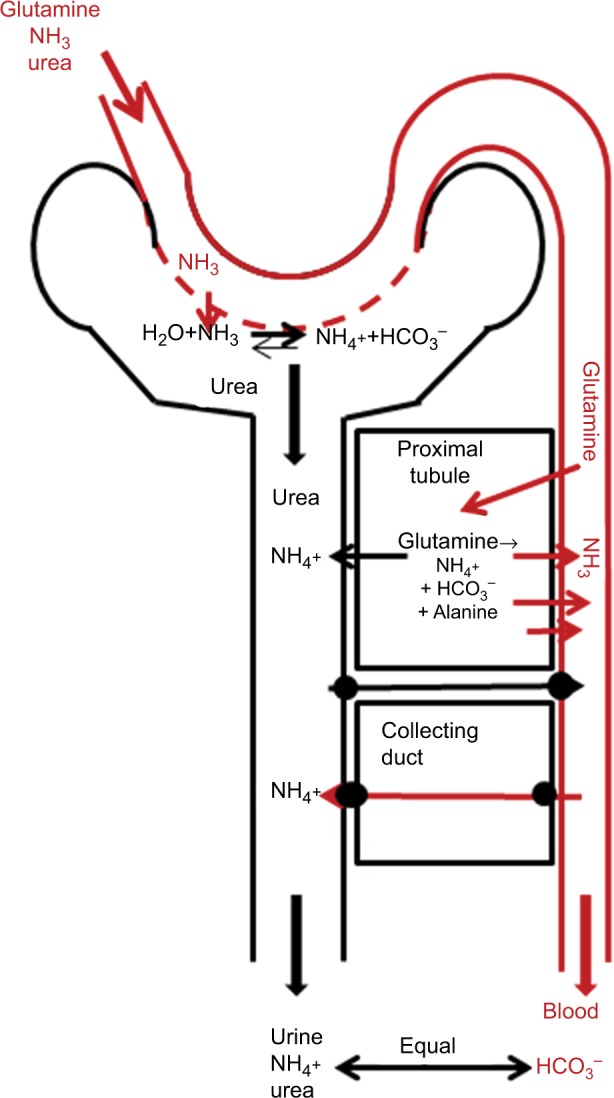Figure 4.

Schematic diagram of processes involved in N balance in the kidney.
Notes: Urinary excretion of NH4+ is the most important factor in the control of acid–base balance. NH4+ is derived primarily from the metabolism of blood glutamine, which is metabolized in the proximal tubule. A complex set of NH4+, NH3, and HCO3– tubule- and collecting duct-transport processes regulate NH4+ excretion. For each NH4+ molecule excreted, an HCO3– molecule is added to the systemic circulation. In addition, some of the glutamine is either used as an energy source or converted to alanine.
